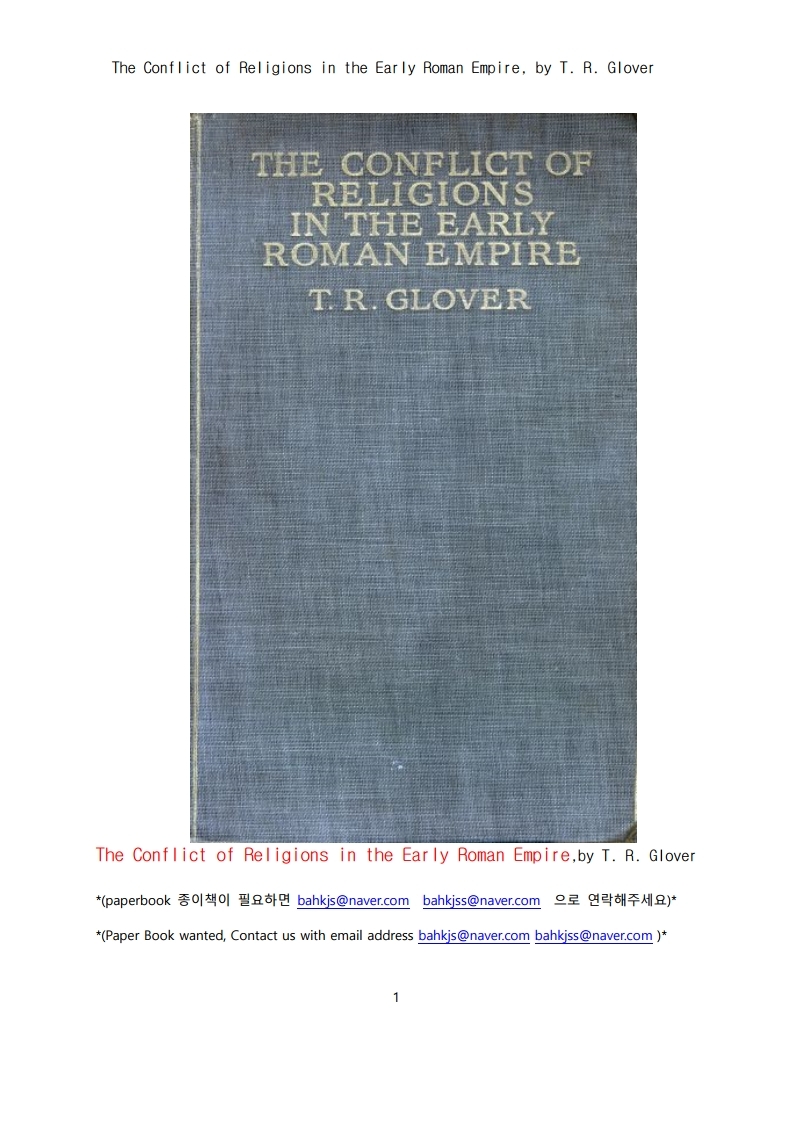역사/풍속/신화 > 서양사
초기 로마제국의 종교들의 대립.The Conflict of Religions in the Early Roman Empire, by T. R. Glover
고대로마종교 스토이학파 프루타그 ,예수와그의제자들,초대교회 기독교와 유다교 대립,신과 아톰과학,셀시우스,알렉산드리아,테툴리안 등등에대해서 기술.
PREFACE
A large part of this book formed the course of Dale Lectures delivered in
Mansfield College, Oxford, in the Spring of 1907. For the lecture-room the
chapters had to be considerably abridged; they are now restored to their full length,
while revision and addition have further changed their character. They are
published in accordance with the terms of the Dale foundation.
To see the Founder of the Christian movement and some of his followers as
they appeared among their contemporaries; to represent Christian and pagan with
equal goodwill and equal honesty, and in one perspective; to recapture something
of the colour and movement of life, using imagination to interpret the data, and
controlling it by them; to follow the conflict of ideals, not in the abstract, but as
they show themselves in character and personality; and in this way to discover
where lay the living force that changed the thoughts and lives of men, and what
it was; these have been the aims of the writer,―impossible, but worth attempting.
So far as they have been achieved, the book is relevant to the reader.
The work of others has made the task lighter. German scholars, such as
Bousset, von Dobsch?tz, Harnack, Pfleiderer and Wernle; Professor F. C. Burkitt
and others nearer home who have written of the beginnings of Christianity;
Boissier, Martha and Professor Samuel Dill; Edward Caird, Lecky, and Zeller;
with the authors of monographs, Croiset, de Faye, Gr?ard, Koziol, Oakesmith,
Volkmann; these and others have been laid under contribution. In another way Dr
Wilhelm Herrmann, of Marburg, and Thomas Carlyle have helped the {vi} book.
The references to ancient authorities are mostly of the writer's own gathering, and
they have been verified.
Lastly, there are friends to thank, at Cambridge and at Woodbrooke, for the
services that only friends can render―suggestion, criticism, approval, correction,
and all the other kindly forms of encouragement and enlightenment.
ST JOHN'S COLLEGE,
CAMBRIDGE,
February 1909.





